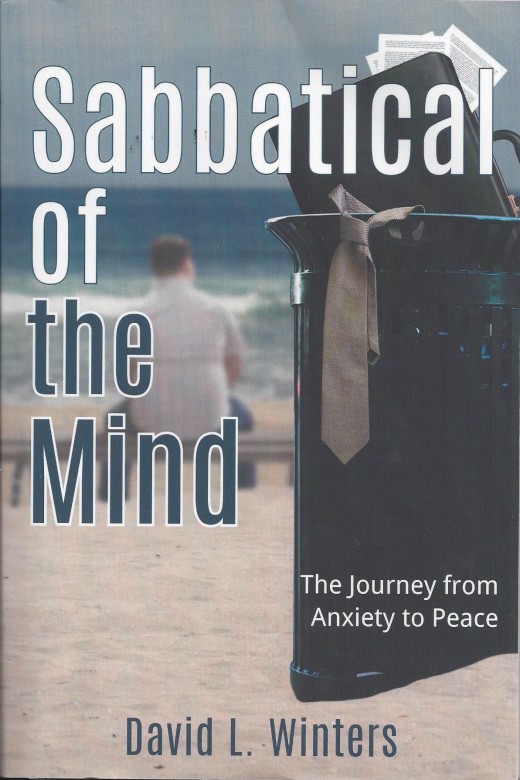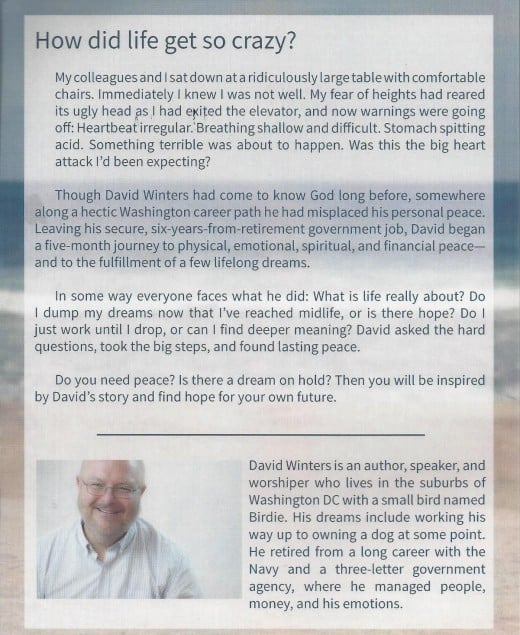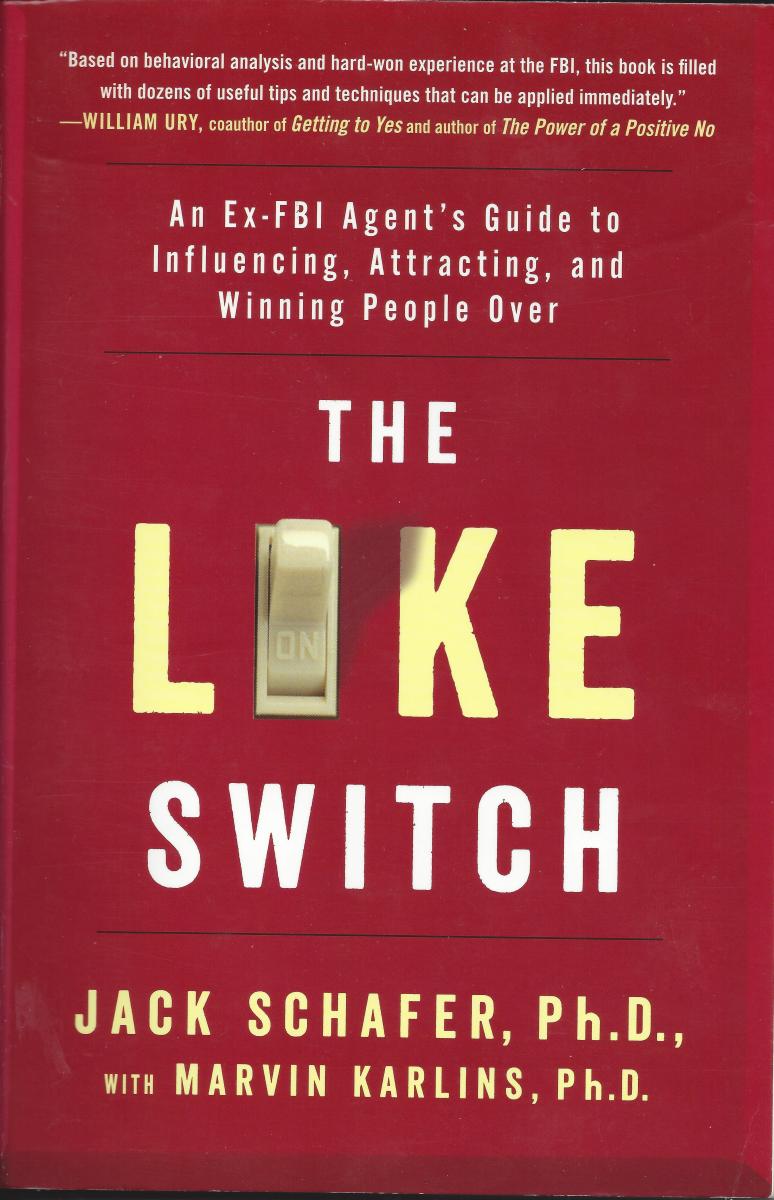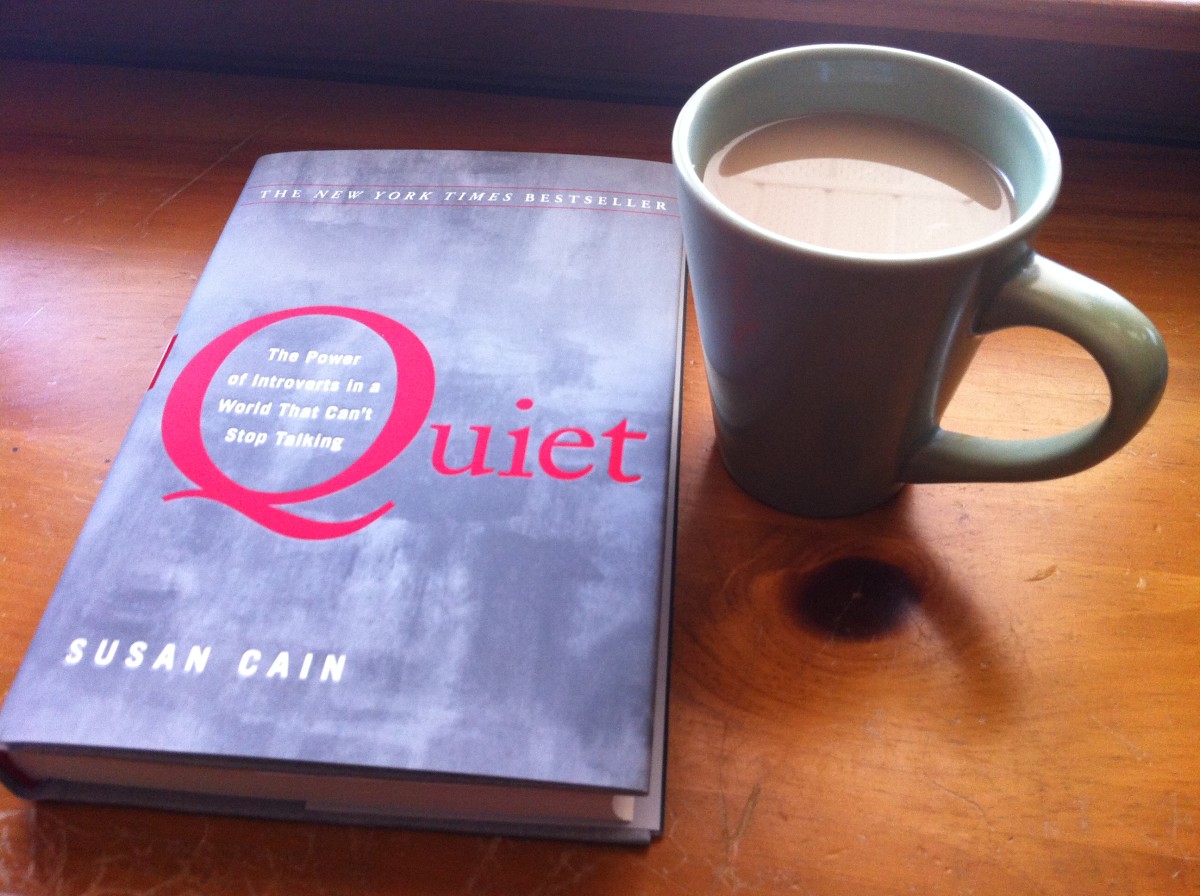Book Review: 'Sabbatical of the Mind'
Introduction
“Sabbatical of the Mind”, subtitled the Journey from Anxiety to Peace, is a book by David L. Winters. It is mostly a detailed but short autobiography by the writer of what led him to take a sabbatical, his months away on Sabbatical and, briefly, his life after returning to work.
What are the pros and cons of this Christian book on one man’s spiritual journey and a look at what a Sabbatical can be like?
Disclaimer
The publisher of this book provided me with a complimentary copy through Book Crash.

The Strengths of this Book
At just under 200 pages, this book is a quick read. It covers everything from the journey’s descent into the depths of depression and periodic anxiety attacks to peace as well as the Biblical basis of the Sabbatical. Note – a Sabbatical is not necessarily an expensive vacation in an exotic locale or curling up in bed and doing nothing.
Mr. Winters’ book gives a good example of how to quickly land in a sabbatical when you find yourself unable to stay where you are, versus the stereotypical semester off from college or summer away from work planned a year in advance.
This book has moderate humor woven throughout. I never thought I’d read a G rated, long narrative on a prolapsed hemorrhoid and the treatment of it.
The book has decent advice on how to cope and deal with the inevitable lack of control we have with the universe. There is advice on how to learn to accept the inevitability of death and learn how to stop controlling everything, though the latter is a common tactic by those with mood disorders to try to compensate. If they can’t control themselves and their feelings, they then try to control everyone else and make the world perfect. It makes them feel better in the short term and even feel important at that moment, but then every failure to control the outcome of events or failure feels like the end of the world. This is half of the pathology of social justice warriors … which is why many young adults need to read this book.
“Sabbatical of the Mind” has many good books mentioned by name those dealing with mood disorders should read, such as “Fear Fighters” by Franklin and “Fearless” by Lucado. Many people stay in bad situations because they are afraid a change makes things worse. Note that life is better if you plan the change in advance and make incrementally.
The list of questions to ask before and during a sabbatical in Appendix A is worth the purchase price of the book if you are planning on a short term off-ramp from your current life.

The Weaknesses of this Book
Many of the author’s problems took years to build up before he couldn’t continue on his course because he sought accommodation for his anxiety attacks or hid them outright, instead of being honest with himself and others. This could have led to help and lifestyle changes years sooner. For everyone else, the lesson is to recognize when life is becoming unbearable and plan how to bring life into alignment with your values before you can’t stand living it anymore.
The author didn’t give much information on the Biblical rules of a Sabbatical beyond “take time off to rest”. There was no information on the Jubilee Year beyond the fact that it existed. However, this is addressed by other books.
Observations
The book understates the stress created by buying a house on the expectation of fixing it up and selling it at a profit or having a large mortgage. Read Dave Ramsey’s books before you find yourself having to quit your job because you literally cannot stay there anymore.
The author’s constant streams of medical problems and injuries along with mood swings suggest more than an anxiety disorder. The emotional states are managed partially by prayer, partially by medical assistance and medication changes, and it is partially resolved through the deliberate cultivation of a social support network. This book is a good look into what life is like for someone with a true anxiety disorder or bipolar disorder where the “up” is an anxiety / highly wound up and stressful stage instead of the classic mania where the person goes shopping with money they don’t have.
The lesson everyone should draw from this book, aside from the Biblical basis of the Sabbatical and how to handle the transition when you don’t have long to plan, is DON’T WAIT until it hits that point. Recognize the symptoms of mental illness and get help before you are a hundred pounds overweight, health failing, life in shambles. And if you are psychologically healthy but near an emotional breaking point, make changes to your life that alter it to its core but in a constructive manner instead of waiting for everything to fall apart.
Summary
Whether as a case study of how to transition to a sabbatical in short order or cope with anxiety problems with a strong dose of religious immersion, “Sabbatical of the Mind” is a good book to read on the subject. If you want to plan a sabbatical well before your life or just your health start to fall apart, start with Dave Ramsey’s Financial Peace University books or “Your Life or Your Money”. All in all, I give this book four stars.








